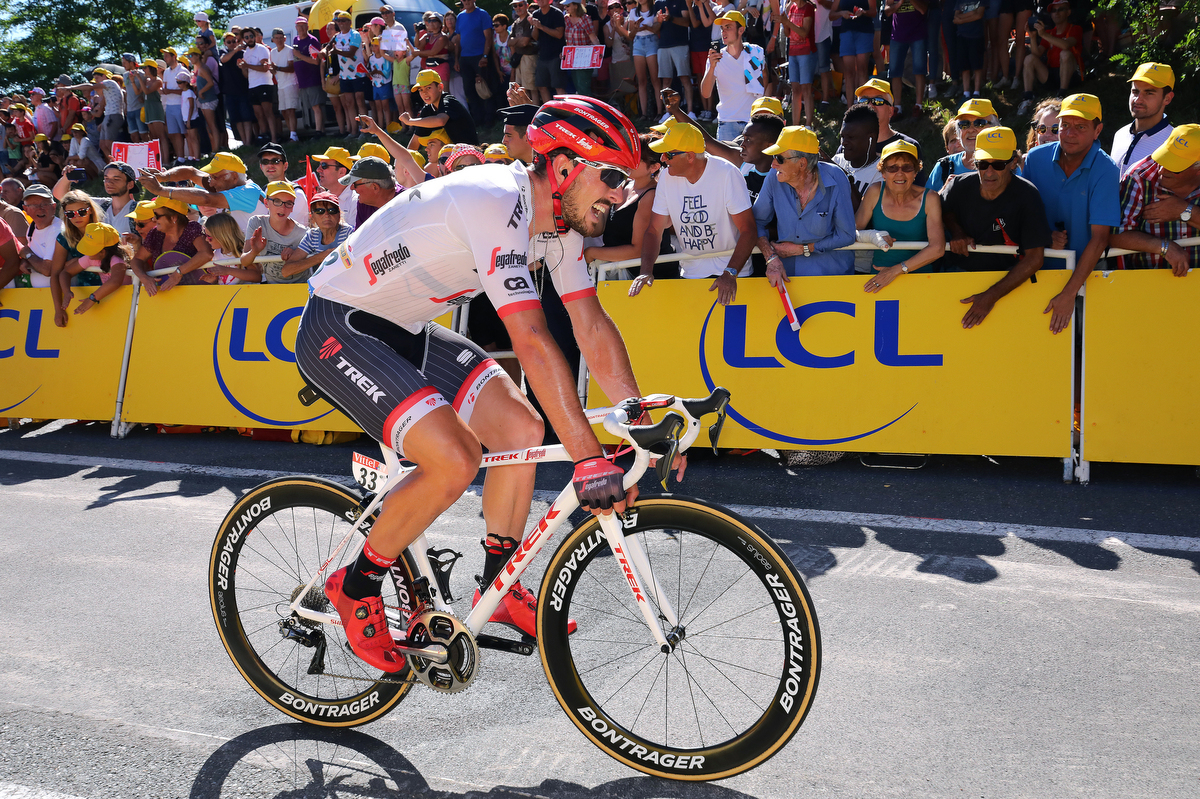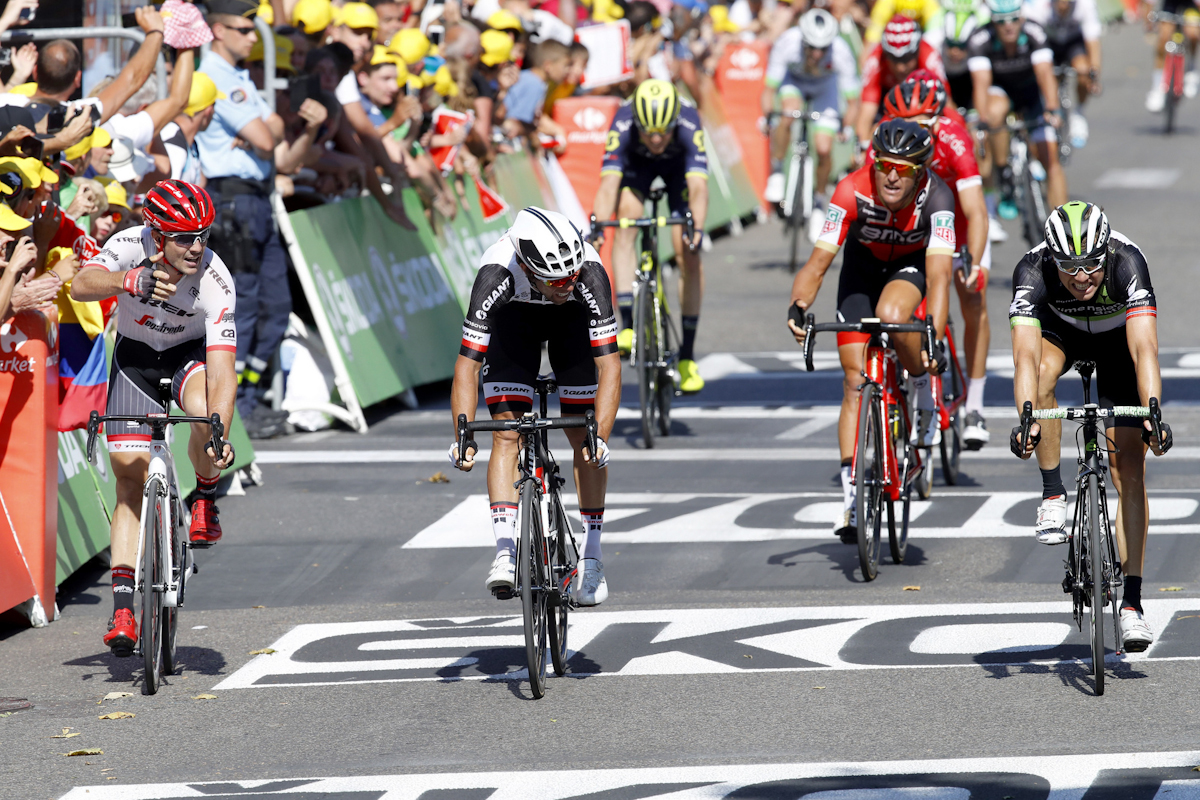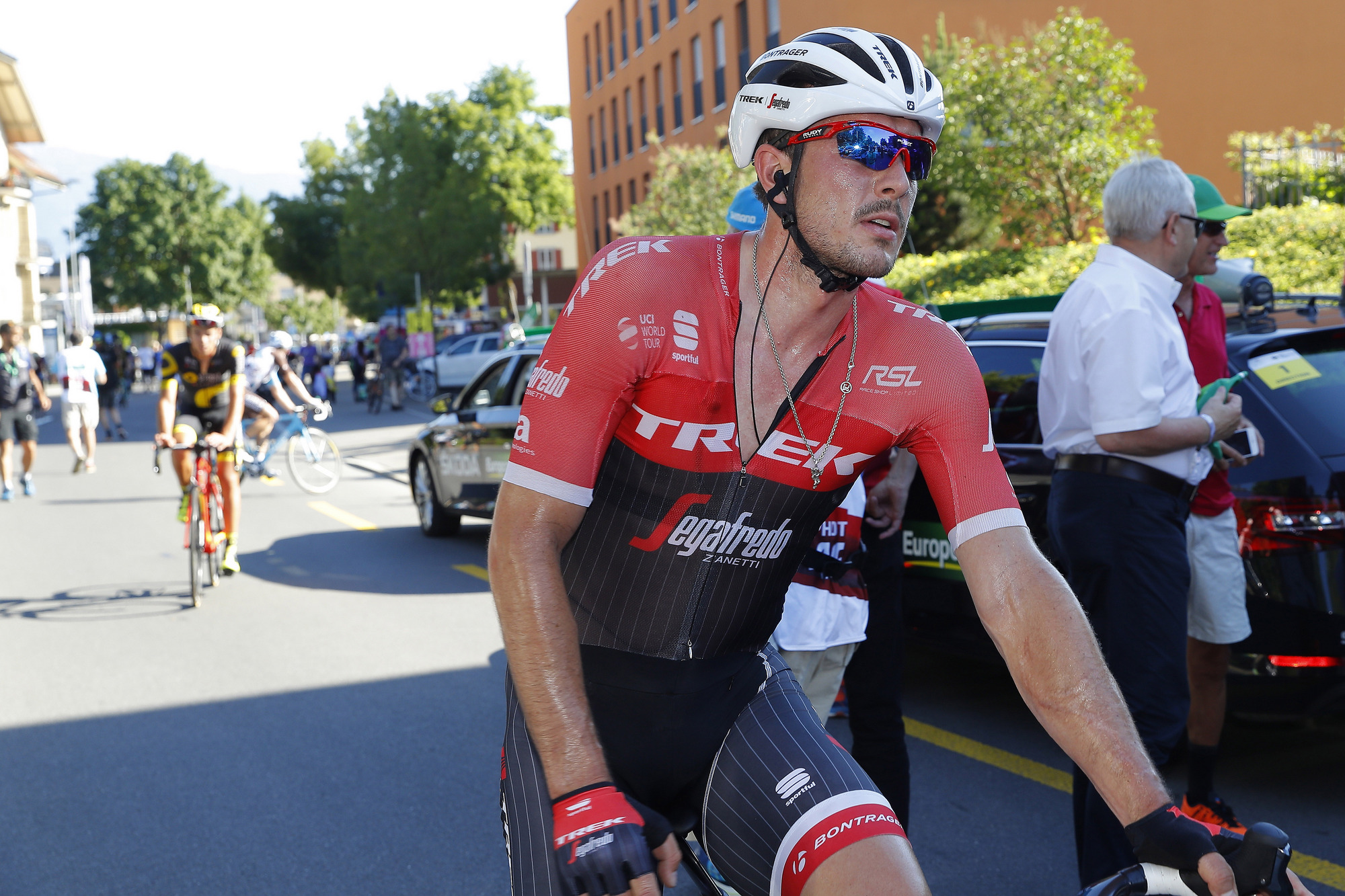Degenkolb: We can turn consistency into Classics success
German talks Classics, Cancellara and the changes of one-day racing



With three top ten places in the spring Classics, John Degenkolb was nothing short of consistent this year. The German, enjoying his first full season after a training crash disrupted his 2016 campaign, led the line at Trek Segafredo but ended his season with just one win to his name. With better luck, and a year under his belt at Trek, Degenkolb believes that he can land a major win next season.
“It’s very hard to give a complete resume of the season but I started well with the win in Dubai. Going into the Classics, I didn’t have bad results, and it’s easy forget that I was top ten in three spring Monuments. Of course I know that only the big victories count but I was consistent and I’m proud of that,” Degenkolb told Cyclingnews at the Rouleur Classic in London last week.
After a fine opening race at the Dubai Tour, the 28-year-old returned to mainland Europe to build on his form. Five top-five performances followed and the former Milan-San Remo winner headed into the Classics as a genuine contender. He finished seventh in Italy and backed that up with fifth in Gent-Wevelgem, seventh in Flanders and tenth in Paris-Roubaix. It was far from disappointing but for a two-time Monument winner it wasn’t where Degenkolb wanted to be.
At the Tour de France the German found himself either working for Alberto Contador in the Spaniard’s final French outing, or surfing through the sprints with limited support. Three top-five performances were turned in but that elusive maiden Tour stage win remained out of reach. Close but not quite close enough seemed to sum up the season.
““Like I said the, big victory was missing and the same happened at the Tour. I started well there, and we were working for Contador. I tried to find my own way there but then I had a huge crash and that threw me way back. I fought back and got a second and a third place but the big victory was missing. That wasn’t satisfying for me or the team but we’re working to improve this.”
Filling the Cancellara sized gap
Of course 2017 was Degenkolb’s debut season in Trek Segafredo colours after the German spent several years racing at Sunweb. The transition from one team to another coincided with Fabian Cancellara hanging up his wheels after over a decade of racing at the top level. The Swiss rider’s departure not only changed Trek’s personnel but also the way in which they approached the Spring races. Gone was their talisman and focal point , as the team looked to replace the Swiss rider’s almost metronomic winning ability with a triumvirate of Degenkolb, Jasper Stuyven and Edward Theuns. Trek’s new Classic blueprint took time to adjust, and while luck played a part, Degenkolb admits that some areas still need improving.
“I think change in general can be positive or negative,” Degenkold said when asked about Cancellara’s departure and joining the team.
Get The Leadout Newsletter
The latest race content, interviews, features, reviews and expert buying guides, direct to your inbox!
“Maybe this time it wasn’t so helpful. I’m not the guy to try and find excuses but sometimes if things happen one way it can have a knock-on effect for the next race. I don’t want to put it all on bad luck but I can say that I gave my best and I’ll do the same next year. I’m very sure that it’s going to be better.”
“For sure you need to find a way. It was a big change, I wouldn’t say it was a negative. We can be confident looking into the next season. We’ll miss Edward next year, and he was a great rider to have on the team in all the races he’s done but that’s life. Everyone has to make their own decisions and we’ll find a good line-up for the Classics, that’s for sure.”
Although Theuns has left for Degenkolb’s old team, Trek head into the 2018 season with a more settled roster and a year of experience in the post-Cancellara era. Ryan Mullen has been added to the roster, and the emergence of Mads Pedersen provides the team with another card to play. For Degenkolb, the plan is to repeat as much as possible from this year; avoid illness remain consistent, and try and affect the races that matter most in the final kilometres. His numbers, he says, are where they were before his training camp collision. The next step is transferring those watts into race wins. Easier said than done, of course, but with Milan-San Remo and Roubaix titles to his name, the German is well capable.
“It’s hard to measure. The only thing we can measure are the values I can produce, and the watts. They were similar, maybe even a bit better this year but the races have also changed. We’ve even more contenders in the Classics than we did in the past and a lot of guys are able to go into the final and make a decision. That’s something that’s different from the past, when we had maybe one or two contenders and the rest have to be really smart just to be make it to the final. Take Flanders this year, it was decided with around 80km to go, because they were all scared of Peter Sagan. The race is more complicated.”
Daniel Benson was the Editor in Chief at Cyclingnews.com between 2008 and 2022. Based in the UK, he joined the Cyclingnews team in 2008 as the site's first UK-based Managing Editor. In that time, he reported on over a dozen editions of the Tour de France, several World Championships, the Tour Down Under, Spring Classics, and the London 2012 Olympic Games. With the help of the excellent editorial team, he ran the coverage on Cyclingnews and has interviewed leading figures in the sport including UCI Presidents and Tour de France winners.
